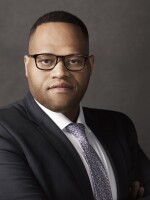More than 800 students attending the University of Connecticut this fall want exemptions from UConn’s coronavirus vaccine mandate, according to information disclosed in new court filings.
Students returning to campus in August are required to get the shot or seek an exemption, which allows them to attend with heightened health and safety requirements, such as wearing masks and staying in periods of quarantine.
Documents reviewed by Connecticut Public’s Accountability Project show at least 771 students requested exemptions for nonmedical reasons, such as religious beliefs or personal discomfort with the vaccine. UConn’s dean of students granted 504 of those requests as of last week, according to court filings. Decisions were pending in the remainder.
An additional 55 students requested medical exemptions.
The mandate comes as the country grapples with a fourth wave of coronavirus infections, and political leaders have increasingly looked to schools, health care systems and private employers to help boost vaccination rates.
UConn is among more than 600 colleges and universities mandating vaccines across the country, according to a list maintained by The Chronicle of Higher Education. The list includes all other public schools in Connecticut, along with Connecticut College, Quinnipiac University, Sacred Heart University, Trinity College, University of New Haven, Wesleyan University and Yale University.
A judge will decide this month whether to temporarily block UConn from enforcing the vaccine mandate. A group of students and parents sued the university’s board of trustees in early July, arguing it violates their constitutional rights.
UConn wants the suit dropped. In a legal filing Friday, it said the students lack standing to sue because they can simply request an exemption, as two of the plaintiffs have already done, according to the trustees.
They argue the third would likely receive an exemption if she requested one and point to UConn’s relatively high approval rate as evidence.
UConn has been “frequently granting requests for non-health exemptions,” an assistant attorney general representing the trustees wrote.
A university spokesperson said UConn “remains confident its policy represents a reasonable approach to providing a safe campus environment while offering a simple, straightforward process for students who wish to seek exemptions.”
Lawyer Ryan McLane, who is representing the plaintiffs, said they disagree with the university’s position and oppose its motion to dismiss the case.



